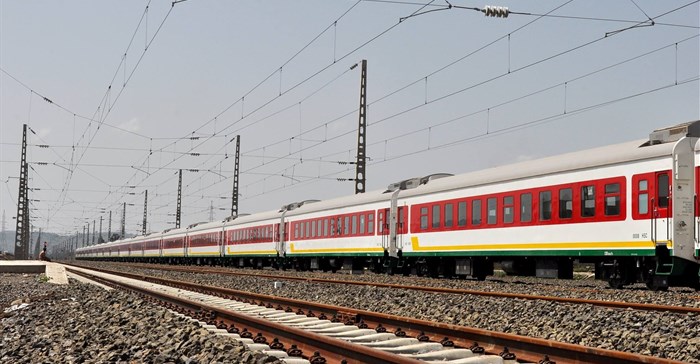
Top stories






More news


















Logistics & Transport
Uganda plans new rail link to Tanzania for mineral export boost










The 750km railway, built by two Chinese companies, will link Addis Ababa to the Red Sea port city of Djibouti in about 10 hours, a far cry from the current excruciating multi-day trip along a congested, pot-holed road.
"We're so excited! It takes two or three days for a truck to come from Djibouti. The driver doesn't answer his phone. We don't know where he is and that can be a bit of a nightmare, said Ethiopian importer Tingrit Worku.
"The train could make a huge difference."
Some 1,500 trucks a day currently lumber along the road which carries 90% of imports and exports from landlocked Ethiopia to the port - a key trade hub to Asia, Europe and the rest of Africa.
"This train is a game changer. Ethiopia is one of the fastest growing economies in Africa. The connection to the ports (of Djibouti) will give a bounce and our economy will grow faster," said Mekonnen Getachew, project manager of the Ethiopian Railways Corporation.
The Horn of Africa country was the world's fastest growing economy last year at 10.2%, however the International Monetary Fund estimates that the worst drought in 30 years is likely to see this plummet to 4.5% in 2016.
Both countries benefit from economic integration, with Ethiopia gaining access to the sea and Djibouti gaining access to Ethiopia's emerging market of 95-million people.
"It is the first standard gauge electrified railroad on the continent built with Chinese standards and technology, and certainly it will not be the last. Many stand to benefit from it," Chinese ambassador to Ethiopia La Yifan said in a statement.
The new railway means the end of the historic French-built diesel line built in 1917, which fell into abandon in later decades, with frequent derailments.
Wednesday's inauguration will be followed by a three-month test period, with no paying passengers and carrying only cargo.
However when the line is fully functional, uniformed Chinese controllers will welcome passengers to spotless platforms of newly built stations all along the route, while Chinese technicians and stationmasters will keep things running in the background.
"We don't yet have the management experience yet. We have a management contract with Chinese staff for five years, with an Ethiopian counterpart in training," said Getachew.
China has invested heavily in infrastructure in Ethiopia, funding sub-Saharan Africa's first modern tramway - which opened last year - as well as motorways and dams.
The new $3.4bn railway, with its red, yellow and green trains evoking the Ethiopian flag, was 70% financed by China's Exim Bank and built by China Railway Group and China Civil Engineering Construction.
A high-level Chinese delegation, in Addis Ababa for the inauguration of the railway, on Tuesday signed further agreements worth $100m for the construction of roads, the state-controlled Fana Broadcasting Corporation reported.
Natural resources from Africa have helped fuel China's economic boom, and it became the continent's largest trade partner in 2009.
Beijing even built the $200m African Union headquarters in Addis Ababa in 2012 as a gift expressing "friendship to the African people".
However direct investment in Africa slumped "more than 40%" last year, as growth slowed in the Asian giant.
The railway is the first step in a vast network of 5,000km of rail which Ethiopia hopes to build by 2020.
"Our plan is to connect the train to Mekele (north), to Moyale (south), near Kenya, and to Gambella (west), near South Sudan. So we will be connected to Kenya, Sudan, South Sudan," said Getachew.
Djibouti, the smallest state in the Horn of Africa, sees the project as the start of a trans-African railway crossing the continent from the Red Sea to the Atlantic Ocean, a journey which takes three weeks by boat.
However this dream appears far off, as the railway would have to pass through war-torn countries such as South Sudan or the Central African Republic.
Source: AFP

For more than two decades, I-Net Bridge has been one of South Africa’s preferred electronic providers of innovative solutions, data of the highest calibre, reliable platforms and excellent supporting systems. Our products include workstations, web applications and data feeds packaged with in-depth news and powerful analytical tools empowering clients to make meaningful decisions.
We pride ourselves on our wide variety of in-house skills, encompassing multiple platforms and applications. These skills enable us to not only function as a first class facility, but also design, implement and support all our client needs at a level that confirms I-Net Bridge a leader in its field.
Go to: http://www.inet.co.za